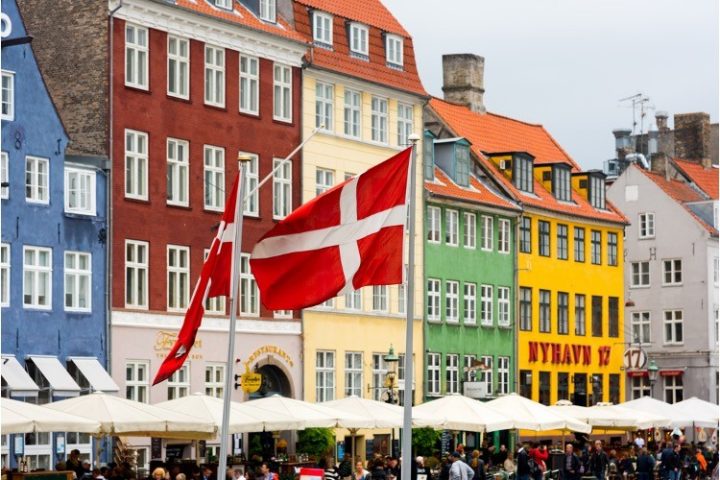
The Kingdom of Denmark will lift all of its domestic COVID-related restrictions by September 10 since COVID-19 is not considered samfundskritisk sygdom, or “an illness which is a critical threat to society,” anymore, Danish health officials announced Friday. Under the Danish pandemic law, this definition provided the government legal grounds to impose all sorts of restrictions on economic and public life.
Danish minister of health Magnus Heunicke said in a statement the decision was made possible because of the country’s high vaccination rate and “strong epidemic control”:
The epidemic is under control, we have record high vaccination rates. Therefore, on September 10, we can drop some of the special rules we have had to introduce in the fight against covid-19. The government has promised not to hold on to the measures any longer than was necessary, and there we are now.
Heunicke added that since the infection is not eradicated completely, authorities would “act quickly” should the threat reemerge.
The minister specified that many provisions of the country’s Epidemic Act will no longer apply to everyday life. Among them are so-called “coronapases,” that were in use since April 2021 and served as a proof of one’s vaccination status, negative COVID test, or antibodies acquired as a result of previous infection. The passes were required for citizens to access certain non-essential businesses including restaurants, stadiums, hairdressers, beauty salons, zoos, driving schools, and other public venues.
The Copenhagen Post reported the “passes” were not required to enter libraries or to attend leisure or educational activities since July 14. The Guardian noted that this requirement has been lifted since August 1 for some venues such as museums, and now will disappear for most others starting September 1. “Coronapas” will still be needed to enter nightclubs and large events, including soccer games, until September 10.
Thanks to the reopening plan in place, the requirement for a coronavirus pass was due to expire for all public places on October 1, but Friday’s decision brought the end of restrictions forward by 20 days.
The other restriction to go is an assembly ban. Since the onset of the pandemic, Denmark has maintained strict rules that allowed less than 10 people to come together at one place at a time. The rule was gradually eased in June, August, and September 2020, and allowed for 100, 200, and then for 500 people to assemble. The assembly limits never applied for private residences.
Finally, the Danes may forgo masks if they wish. The mask mandate was partially lifted back in June 2021, and the media reported a “celebratory” mood among the locals: “The day has finally come: we can all go shopping without a face mask… Store owners and staff are ready to celebrate as, for the first time in over six months, they can see their customers’ faces.”
The mask-wearing remained mandatory on public transportation, but only when standing.
The change in the classification of COVID-19 will not, however, affect rules on travel into Denmark, which are regulated by a separate inter-party agreement which is due to expire in October, according to the Health Ministry. Under current travel rules, both vaccinated and unvaccinated Americans may visit Denmark for any purpose. Unvaccinated visitors must present a negative PCR test that is no more than 72 hours old or a negative rapid/antigen test that is no more than 48 hours old in order to be admitted into the country.
Although Denmark touts more than 70 percent of its 5.8 million citizens are fully vaccinated, some scientists believe the race to vaccinate as many people as possible is unnecessary to control infection. Among them is Viggo Andreasen, associate professor at the Department of Science and the Environment at Roskilde University, who believes that rather than struggle to vaccinate the last unvaccinated die-hards, it now makes sense to allow the virus to spread and let unvaccinated become immune through infection. Andreasen estimated that if all restrictions are lifted, the cohorts that either refuse the vaccine or because they are not eligible to receive it due to their young age would acquire natural immunity within six months.
The local media also explain that the political situation in Denmark has played a significant role in lifting COVID restrictions. It is reported the government has come under pressure from both the right-wing opposition and from several of its supporting parties on the Left that all demanded to revise the classification of COVID as “an illness which is a critical threat to society.” Besides the public fatigue from the restrictions, COVID has objectively not been a “critical threat” to the functions of society as a whole for a fairly long time. For instance, it has not been demanding on the healthcare system in Denmark.
The outlet also observes that “Denmark seems almost alone [in Europe] on this [easing of restrictions].” It says that Germany has just extended its pandemic emergency law. France, similarly, still has its state of emergency in place, as does Italy. All of these countries refuse to lift most of the restrictions, and, instead, enact more, arguing the people who refuse to take experimental vaccines are to blame for the infection numbers and the potential threat to the healthcare system they may pose in the fall.
Local outlet TV2 adds there is a fly in the ointment. In Denmark, COVID is still classified as both a disease which is “dangerous to public health” and an “infectious disease,” which grants the government extended powers to test people and share personal health data between agencies, as well as impose closures of schools and other institutions in the event of outbreaks, carry out contact tracing, etc.




